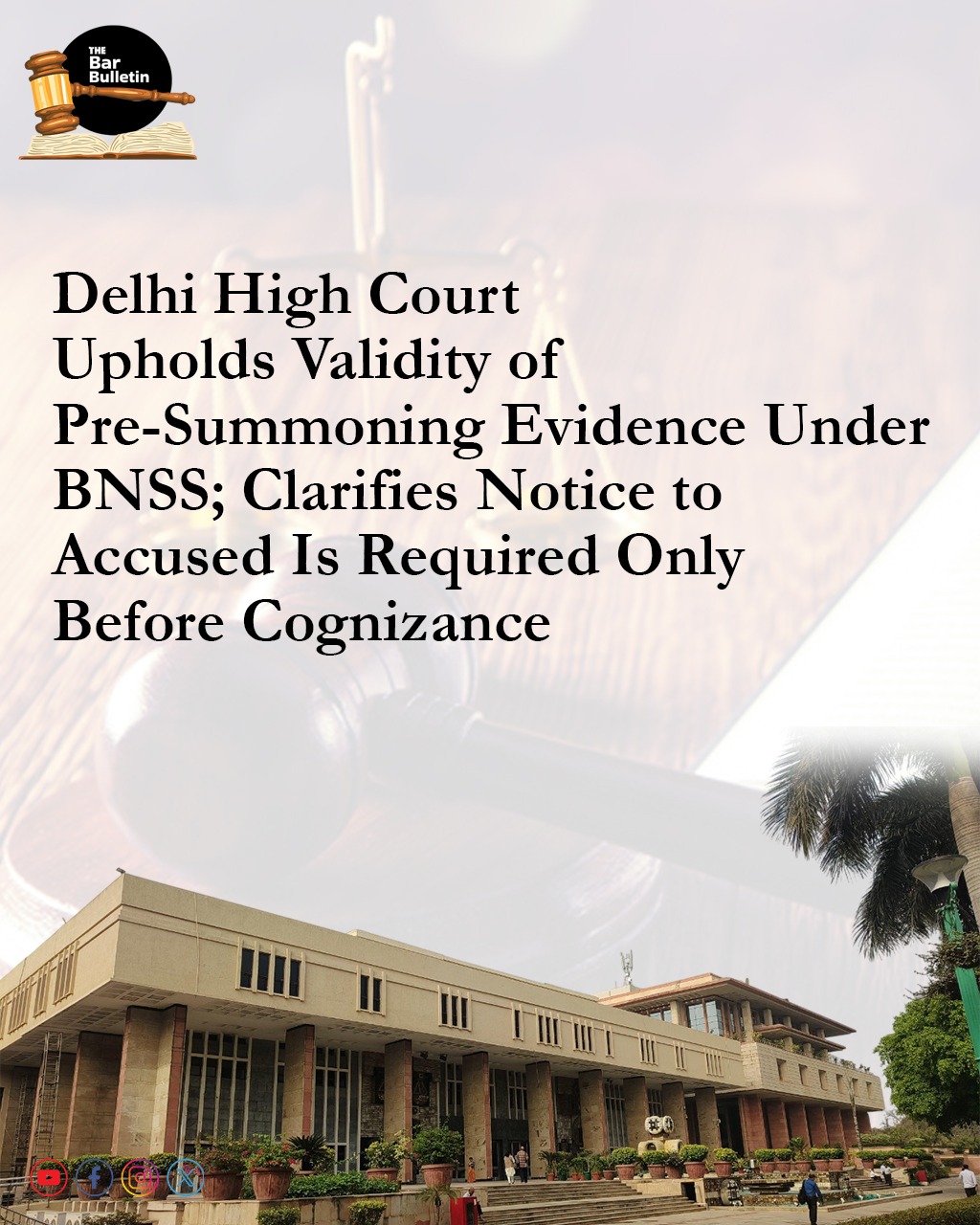The Delhi High Court dismissed a petition challenging the recording of pre-summoning evidence without prior notice to the accused. The Court clarified that while Section 223 BNSS introduces a new procedural safeguard requiring an opportunity of hearing to the accused before cognizance is taken, it does not preclude the examination of the complainant and witnesses at the pre-cognizance stage.
The case arose from a criminal defamation complaint filed by respondent under Section 222 BNSS against the petitioner, Brand Protectors India Pvt. Ltd. The petitioner challenged the order dated January 25, 2025, passed by the Additional Sessions Judge (ASJ), contending that the recording of pre-summoning evidence without notice to the accused violated Section 223 BNSS. The petitioner also relied on pre-BNSS precedents, including Raj Kumar v. State of NCT of Delhi, 2013 SCC OnLine Del 774 and C. Ilavarasu v. State, 2019 SCC OnLine Mad 1119, to argue that no evidence could be recorded before cognizance is taken.
The central issue before the Court was whether the BNSS mandates prior notice to the accused before pre-summoning evidence can be recorded and whether cognizance could be taken only after the accused is heard.
Justice Neena Bansal Krishna examined the textual distinction within Section 223 BNSS and held that the provision largely mirrors Section 200 CrPC with an added safeguard: the accused must be given an opportunity to be heard before cognizance is taken. However, the main provision still mandates that the complainant and any witnesses present be examined on oath as part of the process of taking cognizance. The Court underscored that the words “while taking cognizance of an offence” make it clear that the examination of the complainant/witnesses is a precondition to evaluating whether a prima facie offence exists, and only thereafter must notice be issued to the accused.
The Court further noted that the ASJ had not erred in law, as the procedure adopted was consistent with the statutory language and purpose of the BNSS framework. The newly introduced proviso strengthens the accused’s rights, but does not delay or bar pre-summoning proceedings, such as the recording of evidence needed to determine cognizance.
Accordingly, the petition was dismissed, affirming that the accused has no right to prior notice during the recording of pre-summoning evidence, and that the opportunity to be heard arises only before cognizance is formally taken.
Appearances:
For the Petitioner: Mr. Shubham Dayma, Advocate



